#so bird.
Explore tagged Tumblr posts
Text
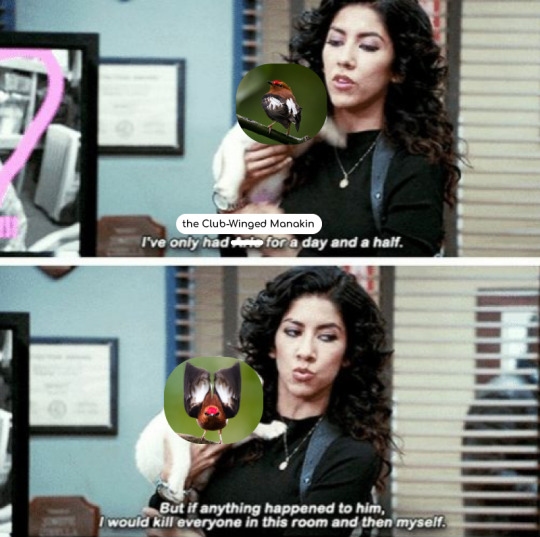
Watch this and tell me I'm wrong. You can't. Can not. You can not.
#club-winged manakin#just watched casual geographic's new vid where he talked a bit about them#and.#they.#are.#so bird.#very bird.#bird-tastic if you will#i drank for the first time in months and a single beer is hitting me a bit hard (shush i'm lightweight)#huh what was that?#WATCH THE CLUB-WINGED MANAKING VID#MANAKING#CAUSE THEY ARE KINGS#also casual geographic#he's pretty cool too
5 notes
·
View notes
Text
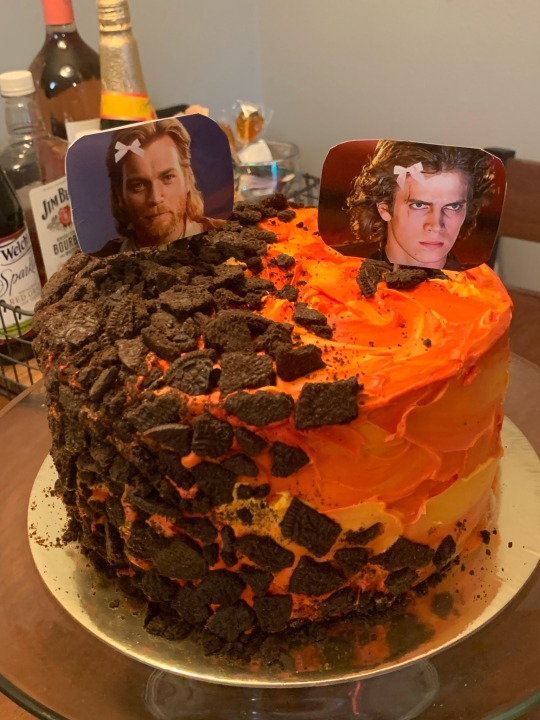
friend made my birthday cake
48K notes
·
View notes
Text
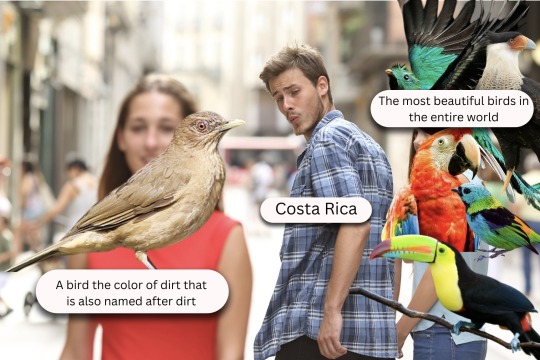
Turdus aficionados of Costa Rica please know I love your national bird but this is objectively hilarious
#Clay-colored thrush#memes#Costa Rica#birds#listen y’all I suffered to make this#my brother literally took a class in college called ‘soils’ so I asked him if clay is dirt or not#and I got a 20 minute lecture about how ‘dirt’ is an incorrect laymen’s term for soil so really nothing in the world is dirt#I said fuck that I’m calling it dirt
38K notes
·
View notes
Text
Planet's Fucked: What Can You Do To Help? (Long Post)
Since nobody is talking about the existential threat to the climate and the environment a second Trump term/Republican government control will cause, which to me supersedes literally every other issue, I wanted to just say my two cents, and some things you can do to help. I am a conservation biologist, whose field was hit substantially by the first Trump presidency. I study wild bees, birds, and plants.
In case anyone forgot what he did last time, he gagged scientists' ability to talk about climate change, he tried zeroing budgets for agencies like the NOAA, he attempted to gut protections in the Endangered Species Act (mainly by redefining 'take' in a way that would allow corporations to destroy habitat of imperiled species with no ramifications), he tried to do the same for the Migratory Bird Treaty Act (the law that offers official protection for native non-game birds), he sought to expand oil and coal extraction from federal protected lands, he shrunk the size of multiple national preserves, HE PULLED US OUT OF THE PARIS CLIMATE AGREEMENT, and more.
We are at a crucial tipping point in being able to slow the pace of climate change, where we decide what emissions scenario we will operate at, with existential consequences for both the environment and people. We are also in the middle of the Sixth Mass Extinction, with the rate of species extinctions far surpassing background rates due completely to human actions. What we do now will determine the fate of the environment for hundreds or thousands of years - from our ability to grow key food crops (goodbye corn belt! I hated you anyway but), to the pressure on coastal communities that will face the brunt of sea level rise and intensifying extreme weather events, to desertification, ocean acidification, wildfires, melting permafrost (yay, outbreaks of deadly frozen viruses!), and a breaking down of ecosystems and ecosystem services due to continued habitat loss and species declines, especially insect declines. The fact that the environment is clearly a low priority issue despite the very real existential threat to so many people, is beyond my ability to understand. I do partly blame the public education system for offering no mandatory environmental science curriculum or any at all in most places. What it means is that it will take the support of everyone who does care to make any amount of difference in this steeply uphill battle.
There are not enough environmental scientists to solve these issues, not if public support is not on our side and the majority of the general public is either uninformed or actively hostile towards climate science (or any conservation science).
So what can you, my fellow Americans, do to help mitigate and minimize the inevitable damage that lay ahead?
I'm not going to tell you to recycle more or take shorter showers. I'll be honest, that stuff is a drop in the bucket. What does matter on the individual level is restoring and protecting habitat, reducing threats to at-risk species, reducing pesticide use, improving agricultural practices, and pushing for policy changes. Restoring CONNECTIVITY to our landscape - corridors of contiguous habitat - will make all the difference for wildlife to be able to survive a changing climate and continued human population expansion.
**Caveat that I work in the northeast with pollinators and birds so I cannot provide specific organizations for some topics, including climate change focused NGOs. Scientists on tumblr who specialize in other fields, please add your own recommended resources. **
We need two things: FUNDING and MANPOWER.
You may surprised to find that an insane amount of conservation work is carried out by volunteers. We don't ever have the funds to pay most of the people who want to help. If you really really care, consider going into a conservation-related field as a career. It's rewarding, passionate work.
At the national level, please support:
The Nature Conservancy
Xerces Society for Invertebrate Conservation
Cornell Lab of Ornithology (including eBird)
National Audubon Society
Federal Duck Stamps (you don't need to be a hunter to buy one!)
These first four work to acquire and restore critical habitat, change environmental policy, and educate the public. There is almost certainly a Nature Conservancy-owned property within driving distance of you. Xerces plays a very large role in pollinator conservation, including sustainable agriculture, native bee monitoring programs, and the Bee City/Bee Campus USA programs. The Lab of O is one of the world's leaders in bird research and conservation. Audubon focuses on bird conservation. You can get annual memberships to these organizations and receive cool swag and/or a subscription to their publications which are well worth it. You can also volunteer your time; we need thousands of volunteers to do everything from conducting wildlife surveys, invasive species removal, providing outreach programming, managing habitat/clearing trails, planting trees, you name it. Federal Duck Stamps are the major revenue for wetland conservation; hunters need to buy them to hunt waterfowl but anyone can get them to collect!
THERE ARE DEFINITELY MORE, but these are a start.
Additionally, any federal or local organizations that seek to provide support and relief to those affected by hurricanes, sea level rise, any form of coastal climate change...
At the regional level:
These are a list of topics that affect major regions of the United States. Since I do not work in most of these areas I don't feel confident recommending specific organizations, but please seek resources relating to these as they are likely major conservation issues near you.
PRAIRIE CONSERVATION & PRAIRIE POTHOLE WETLANDS
DRYING OF THE COLORADO RIVER (good overview video linked)
PROTECTION OF ESTUARIES AND SALTMARSH, ESPECIALLY IN THE DELAWARE BAY AND LONG ISLAND (and mangroves further south, everglades etc; this includes restoring LIVING SHORELINES instead of concrete storm walls; also check out the likely-soon extinction of saltmarsh sparrows)
UNDAMMING MAJOR RIVERS (not just the Colorado; restoring salmon runs, restoring historic floodplains)
NATIVE POLLINATOR DECLINES (NOT honeybees. for fuck's sake. honeybees are non-native domesticated animals. don't you DARE get honeybee hives to 'save the bees')
WILDLIFE ALONG THE SOUTHERN BORDER (support the Mission Butterfly Center!)
INVASIVE PLANT AND ANIMAL SPECIES (this is everywhere but the specifics will differ regionally, dear lord please help Hawaii)
LOSS OF WETLANDS NATIONWIDE (some states have lost over 90% of their wetlands, I'm looking at you California, Ohio, Illinois)
INDUSTRIAL AGRICULTURE, esp in the CORN BELT and CALIFORNIA - this is an issue much bigger than each of us, but we can work incrementally to promote sustainable practices and create habitat in farmland-dominated areas. Support small, local farms, especially those that use soil regenerative practices, no-till agriculture, no pesticides/Integrated Pest Management/no neonicotinoids/at least non-persistent pesticides. We need more farmers enrolling in NRCS programs to put farmland in temporary or permanent wetland easements, or to rent the land for a 30-year solar farm cycle. We've lost over 99% of our prairies to corn and soybeans. Let's not make it 100%.
INDIGENOUS LAND-BACK EFFORTS/INDIGENOUS LAND MANAGEMENT/TEK (adding this because there have been increasing efforts not just for reparations but to also allow indigenous communities to steward and manage lands either fully independently or alongside western science, and it would have great benefits for both people and the land; I know others on here could speak much more on this. Please platform indigenous voices)
HARMFUL ALGAL BLOOMS (get your neighbors to stop dumping fertilizers on their lawn next to lakes, reduce agricultural runoff)
OCEAN PLASTIC (it's not straws, it's mostly commercial fishing line/trawling equipment and microplastics)
A lot of these are interconnected. And of course not a complete list.
At the state and local level:
You probably have the most power to make change at the local level!
Support or volunteer at your local nature centers, local/state land conservancy non-profits (find out who owns&manages the preserves you like to hike at!), state fish & game dept/non-game program, local Audubon chapters (they do a LOT). Participate in a Christmas Bird Count!
Join local garden clubs, which install and maintain town plantings - encourage them to use NATIVE plants. Join a community garden!
Get your college campus or city/town certified in the Bee Campus USA/Bee City USA programs from the Xerces Society
Check out your state's official plant nursery, forest society, natural heritage program, anything that you could become a member of, get plants from, or volunteer at.
Volunteer to be part of your town's conservation commission, which makes decisions about land management and funding
Attend classes or volunteer with your land grant university's cooperative extension (including master gardener programs)
Literally any volunteer effort aimed at improving the local environment, whether that's picking up litter, pulling invasive plants, installing a local garden, planting trees in a city park, ANYTHING. make a positive change in your own sphere. learn the local issues affecting your nearby ecosystems. I guarantee some lake or river nearby is polluted
MAKE HABITAT IN YOUR COMMUNITY. Biggest thing you can do. Use plants native to your area in your yard or garden. Ditch your lawn. Don't use pesticides (including mosquito spraying, tick spraying, Roundup, etc). Don't use fertilizers that will run off into drinking water. Leave the leaves in your yard. Get your school/college to plant native gardens. Plant native trees (most trees planted in yards are not native). Remove invasive plants in your yard.
On this last point, HERE ARE EASY ONLINE RESOURCES TO FIND NATIVE PLANTS and LEARN ABOUT NATIVE GARDENING:
Xerces Society Pollinator Conservation Resource Center
Pollinator Pathway
Audubon Native Plant Finder
Homegrown National Park (and Doug Tallamy's other books)
National Wildlife Federation Native Plant Finder (clunky but somewhat helpful)
Heather Holm (for prairie/midwest/northeast)
MonarchGard w/ Benjamin Vogt (for prairie/midwest)
Native Plant Trust (northeast & mid-atlantic)
Grow Native Massachusetts (northeast)
Habitat Gardening in Central New York (northeast)
There are many more - I'm not familiar with resources for western states. Print books are your biggest friend. Happy to provide a list of those.
Lastly, you can help scientists monitor species using citizen science. Contribute to iNaturalist, eBird, Bumblebee Watch, or any number of more geographically or taxonomically targeted programs (for instance, our state has a butterfly census carried out by citizen volunteers).
In short? Get curious, get educated, get involved. Notice your local nature, find out how it's threatened, and find out who's working to protect it that you can help with. The health of the planet, including our resilience to climate change, is determined by small local efforts to maintain and restore habitat. That is how we survive this. When government funding won't come, when we're beat back at every turn trying to get policy changed, it comes down to each individual person creating a safe refuge for nature.
Thanks for reading this far. Please feel free to add your own credible resources and organizations.
#us election#climate change#united states election#resources#native plants#this took 3 hours to write so maybe don't let it flop? i know i write long posts. i know i follow scientists on here#that study birds and corals and other creatures#i realize i did not link sources/resources for everything. i encourage those more qualified to add things on. i need to go to work
16K notes
·
View notes
Text

HELLO?????
#Grian is NOT beating the horrible bird thing allegations#he looks so awful I’m in tears. those beady eyes. I’m so scared#jimmy solidarity#joel smallishbeans#grian
13K notes
·
View notes
Text
Bearded vultures will see an iron oxide rich mud puddle and go 'is anyone going to bathe in that' and not wait for an answer
17K notes
·
View notes
Text

Bruh,,,,
34K notes
·
View notes
Photo
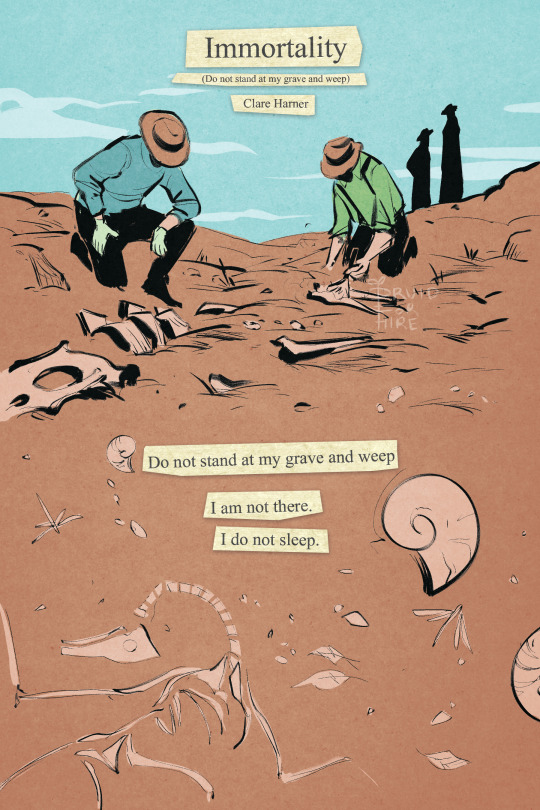
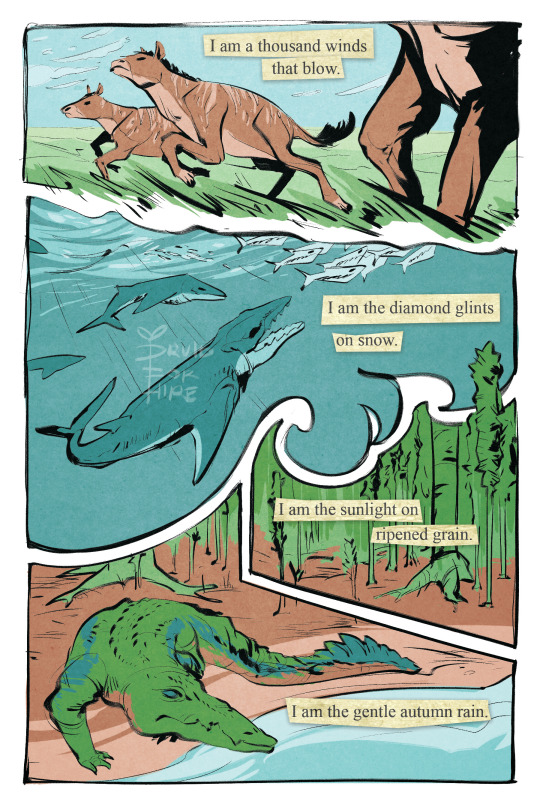
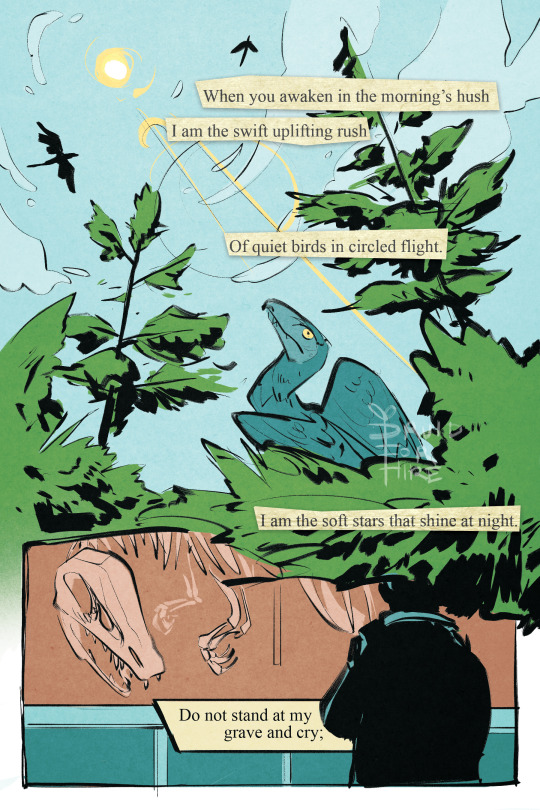
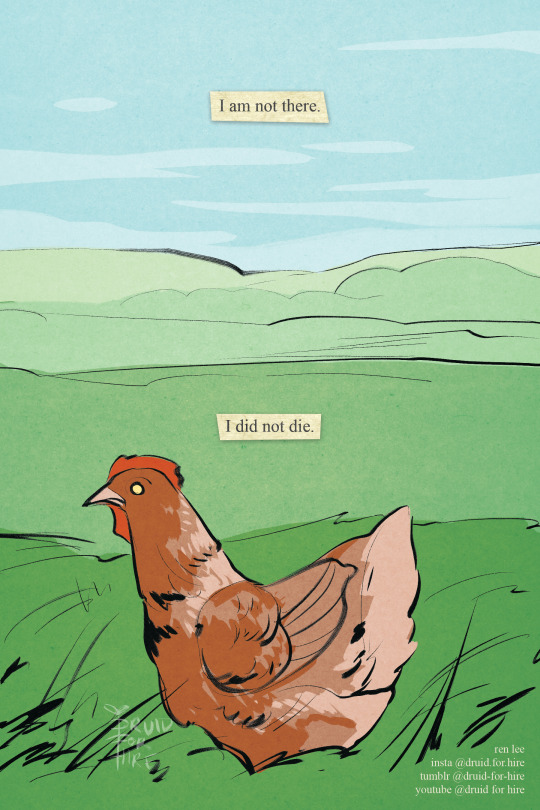
[image id: a four-page comic. it is titled "immortality” after the poem by clare harner (more popularly known as “do not stand at my grave and weep”). the first page shows paleontologists digging up fossils at a dig. it reads, “do not stand at my grave and weep. i am not there. i do not sleep.” page two features several prehistoric creatures living in the wild. not featured but notable, each have modern descendants: horses, cetaceans, horsetail plants, and crocodilians. it reads, “i am a thousand winds that blow. i am the diamond glints on snow. i am the sunlight on ripened grain. i am the gentle autumn rain.” the third page shows archaeopteryx in the treetops and the skies, then a modern museum-goer reading the placard on a fossil display. it reads, “when you awaken in the morning’s hush, i am the swift uplifting rush, of quiet birds in circled flight. i am the soft stars that shine at night. do not stand at my grave and cry.” the fourth page shows a chicken in a field. it reads, “i am not there. i did not die” / end id]
a comic i made in about 15 hours for my school’s comic anthology. the theme was “evolution”
#dinosaur#evolution#comic#prehistoric#animal#wildlife#paleontology#biology#poetry#comics#original#my art#archaeopteryx has no direct living descendants i know#but i wanted something aerial and the dinosaur to bird connection is classic and well known anyway#also the chicken over any other bird is very on purpose#its the mix of truth and comedy and genuineness and the fantastic in the mundane#its me asking you to see something so wonderful in something taken so un-seriously#and to love it both ways#also the jurassic park thing#where someone saw the reconstructed gait of a dino#and said. hey hang on. i know that walk.#and pulled up footage of a chicken walking#which jumpstarted the entire study into the link between dinosaurs and birds#in the end take whatever you want from it i just thought id provide some insight#i always like it when other artists do#the point is that i enjoy when people laugh at the end and when they dont#and i like it when they cry. i like it best when they both laugh and cry. eeaao intent#anyway mourn your losses but to live is to change#also hi guys i finally figured out tipping after 5 months so no more annoying ko-fi link#the antidote to despair is awe
150K notes
·
View notes
Text
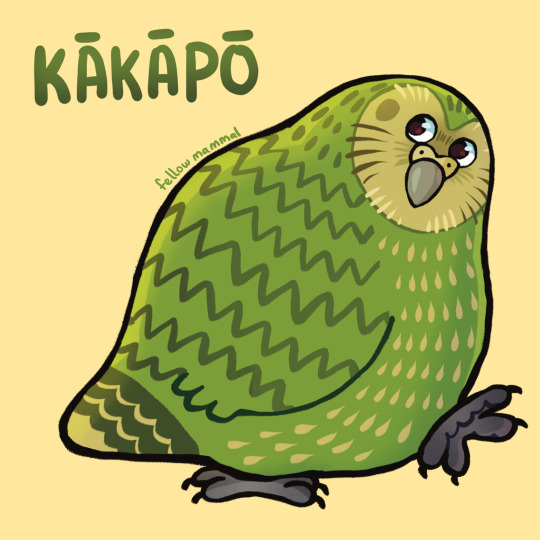
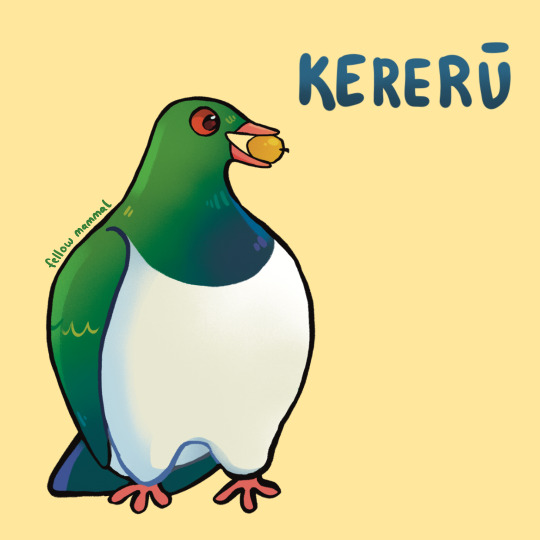
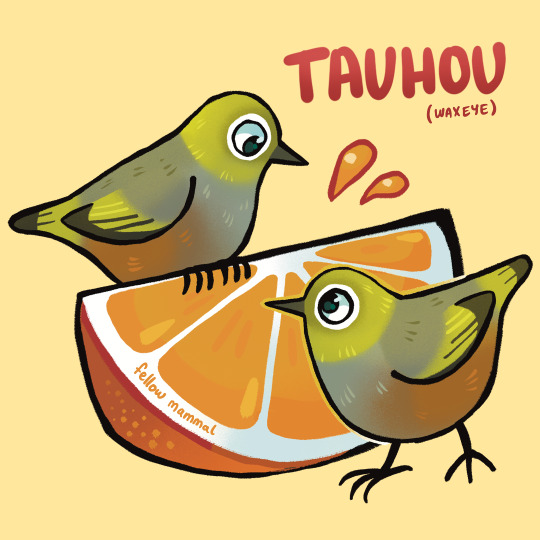
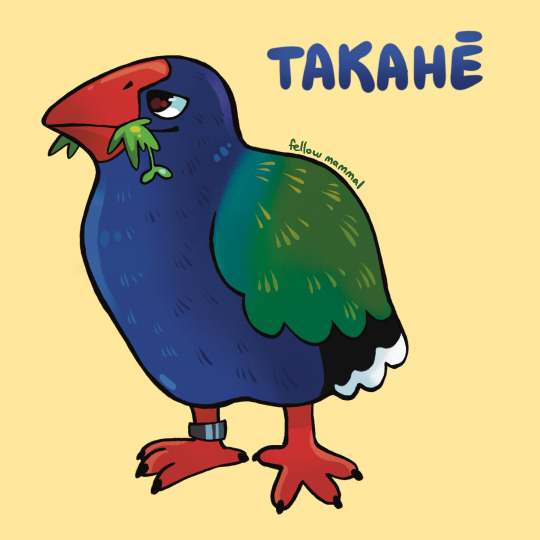
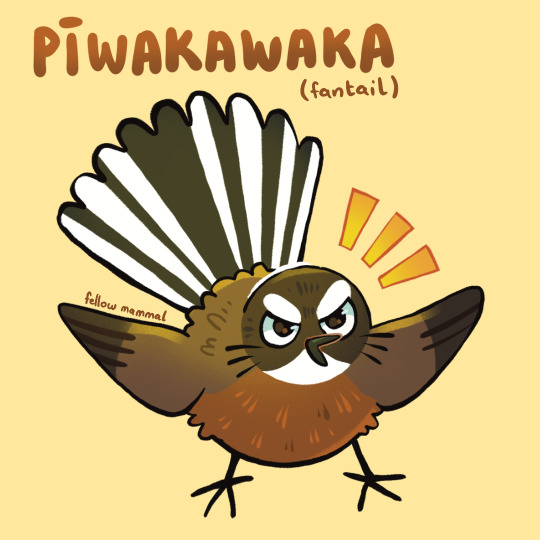

Birds of Aotearoa! At the very least, a couple of them!
#artists on tumblr#birds#kakapo#kea#takahe#kereru#fantail#waxeye#kiwi’s WIP! i wasnt happy w the pose so im just sitting on it for a bit longer
21K notes
·
View notes
Text
Today I saw a pic of a baby cowbird next 2 its nest "parent" and it was so much bigger!!!!! Which is the sort of thing that gets normal people upset about the injustice of nest parasitism but makes *me* worry if baby cowbirds get bird dysmorphia
#they are SO MUCH BIGGER its just like. do you think they get confused by the whole thing?#... maybe thats enough birds for today#animal friends
67K notes
·
View notes
Text

heres a picture that i really like check it out
27K notes
·
View notes
Text
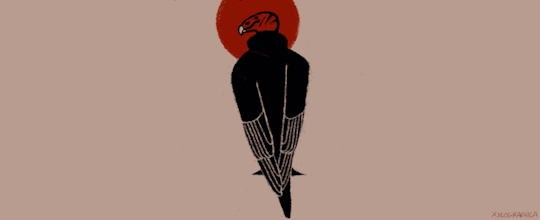
sunlight
#animation#buzzard#turkey vulture#vulture#reductive#digital#bird#this took. 7 hours#oh god tumblr chewed this up so bad. please full view this
17K notes
·
View notes
Text
If you're in Wisconsin and looking for (or can take and process) meat birds, or know someone who can, there's a Situation going on:

The producer company just decided they didn't want the birds anymore and left the farmers that raised the birds a few days ago high and dry with no food coming in beyond what they had on hand. They've been working with locals have been organizing to get the birds out and processed so they don't suffer.
W21462 Holcomb Coulee Road, Galesville, WI 54630 --Sunday 10/13/2024 12noon-6pm Valarie Dianne
N47656 CTH-Y, Eleva WI, open during daylight. AT LEAST 25,000 in this barn And 23,000 more. Daylight Hours. (Dawn Filla)
W166 Highway 10, Mondovi Wisconsin 54738 (open any time during daylight) - About 2,000-3,000 birds remain for Sunday 10/13 starting at 9am.
Greg Marten’s Barn- W284 County Road HH Mondovi : (Julie Marten)- 25,000+ left pick up starts; Sunday 10/13/24 6am
I'm not close enough to help but hopefully this can reach folks who are.
5K notes
·
View notes
Text




they say it wasn't humans who found the lost dutchman's gold
(another set of traffic box illustrations!!)
#art#painting#illustration#digital#coyotes#coyote#ringtail#birds#cactus wren#pyrrhuloxia#puma#mountain lion#cougar#desert#sonoran desert#my art#the city for this one gave me basically no restrictions on what to draw except to 'make it family friendly' bc it's at an intersection#so i said. you are getting local wildlife. and bursts of light. and fun swirly shapes. i was SO self indulgent with this one it was GREAT#the puma's based off a local phenomenon where twice a year the sun hits the mountains right to cast a puma shadow and it's sick as hell#greatest hits
6K notes
·
View notes
Text

relaxing with pigeons
4K notes
·
View notes
Text
i helped an older man figure out the picture printing at the drugstore today. he was printing these beautiful pictures of birds he took during his birdwatching adventures. and he printed some extra for me as thanks!!!
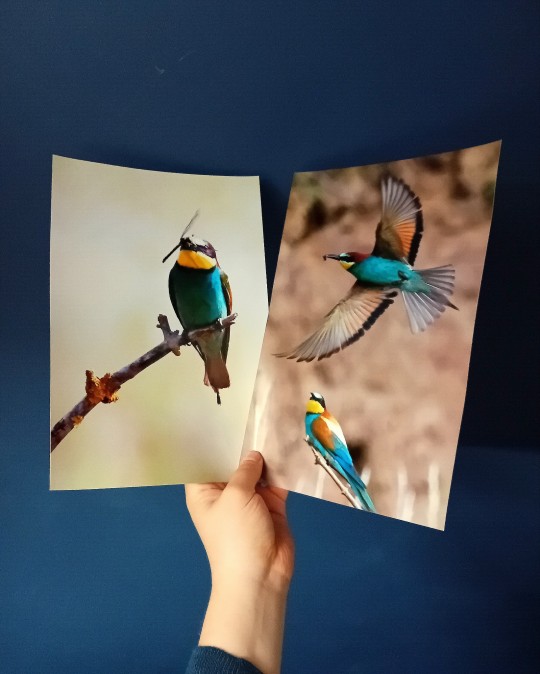
aren't these just breathtaking. i asked him for his name so i could credit him and he said "i better not tell you. what if you remember my name and forget the bird's?" now that's a REAL birdwatcher. locked in.
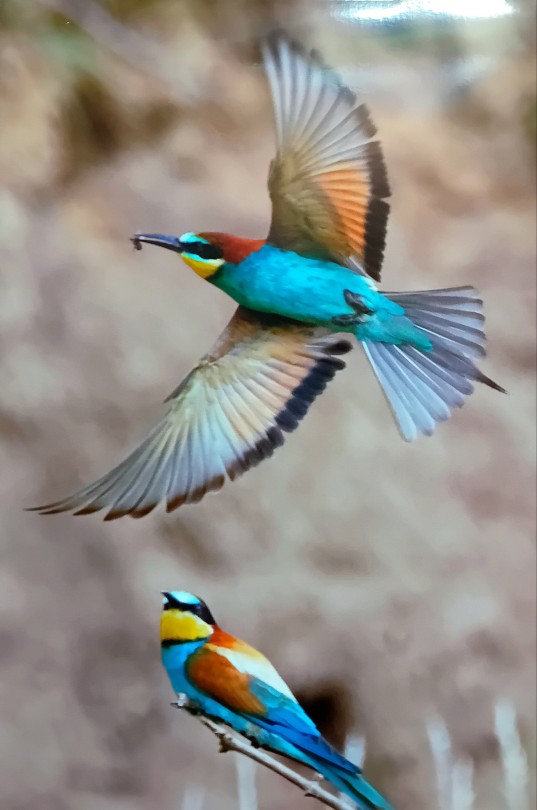
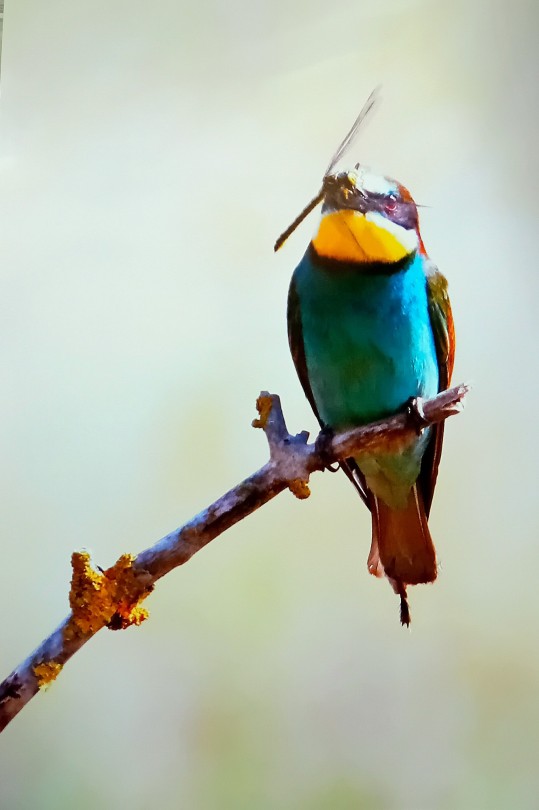
look at this!! the European Bee-eater (Merops apiaster) in all its glory! so so so beautiful...
#i remember the birds name I'M DOING MY PART#so so lucky to have run into this man. what a guy#just this morning in the shower i was thinking about shared joy with strangers... LOOK AT THESE
5K notes
·
View notes